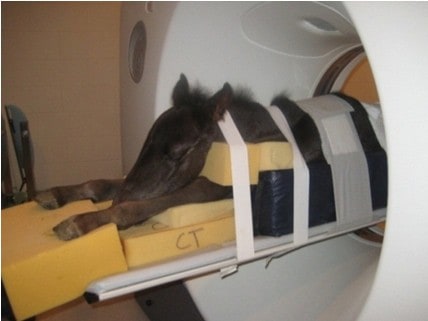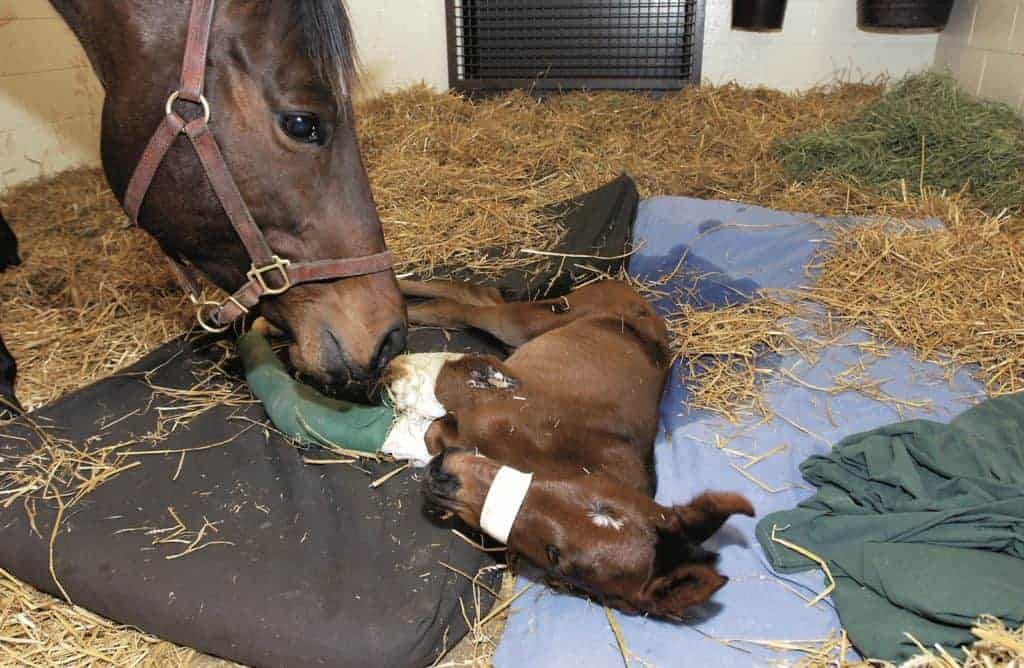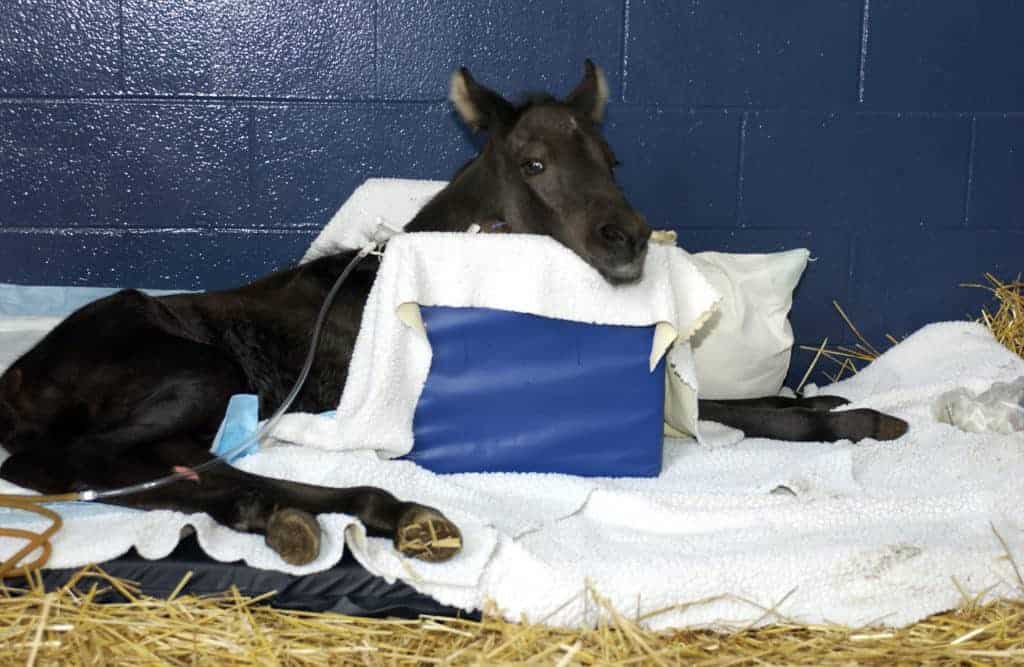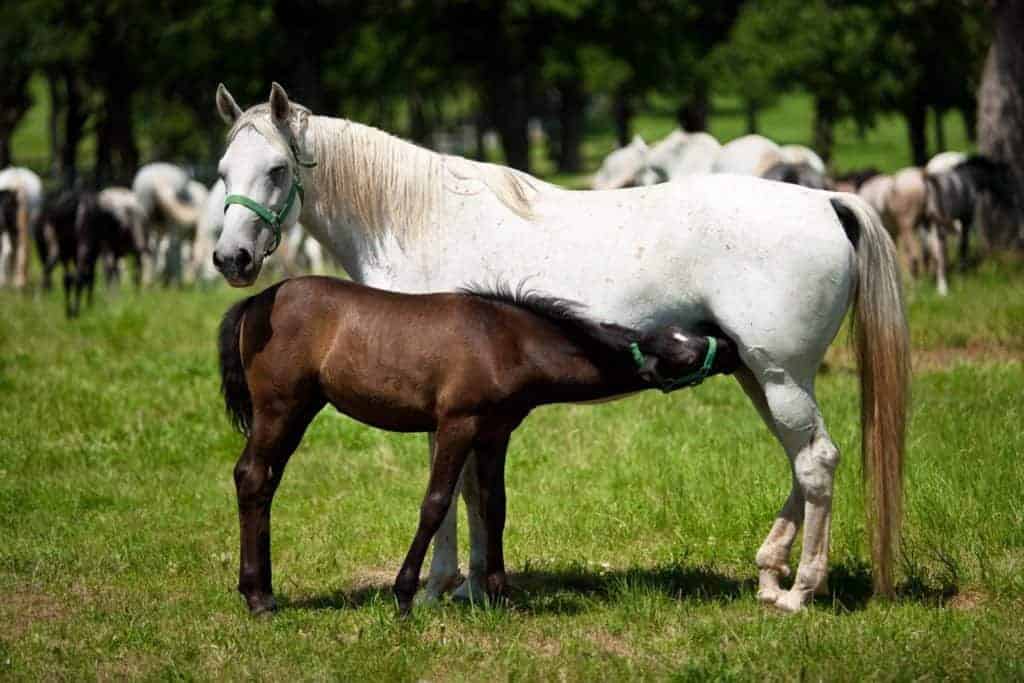
Fetal Consciousness’ Impact on Equine Neonatal Health
Researchers believe the fetal consciousness transition could have a significant impact on neonatal health.

Researchers believe the fetal consciousness transition could have a significant impact on neonatal health.

Veterinarians are taking a page from human medicine books by using CT to evaluate pulmonary disease in foals.

Researchers are investigating how young horse management practices can impact osteochondral lesions.

Neonatologist Dr. Christine Gleason of Seattle Children’s Hospital talks about the similarities between human babies and foals and lessons the two fields can learn from each other.
Presentations topics ranged from the physiological details of reproduction and foaling to diets and nutrition.

Drs. Nathan Slovis and Peter Morresey present unique medical and surgical cases involving foals, including heart murmurs, ivermectin overdose, sepsis, foals post dystocia, hernias, fractured ribs, kidney problems, and more.

A behaviorist describes mare and foal behavior and how to avoid perpetuating undesirable orphan foal behavior.

Researchers developed a uniform system for classifying cases of contracted foal syndrome (CFS).
The fourth edition has been completely updated and has several new sections added.
At what age is it safe to introduce a foal to the herd? Is there a recommended way for the introduction?

Dr. Mary Rose Paradis discusses options and methods for feeding orphan foals. Learn about inducing lactation in barren mares, using milk substitutes, feeding orphans with milk from other species, and more.
How can I check on a foal to make sure he’s thriving without being in danger with the protective mare?

Although early VOD diagnosis is critical, diagnosis could be confounded by nonspecific signs of the disease.
Yearly variability in exposure to a severe disease-causing bacterium of young horses appears to be different than previously thought.

Supporting broodmares’ overall and nutritional health during lactation is especially crucial.

Dysphagic foals require immediate, specialized care to ensure they begin life without a nutritional deficit.
Stay on top of the most recent Horse Health news with
"*" indicates required fields